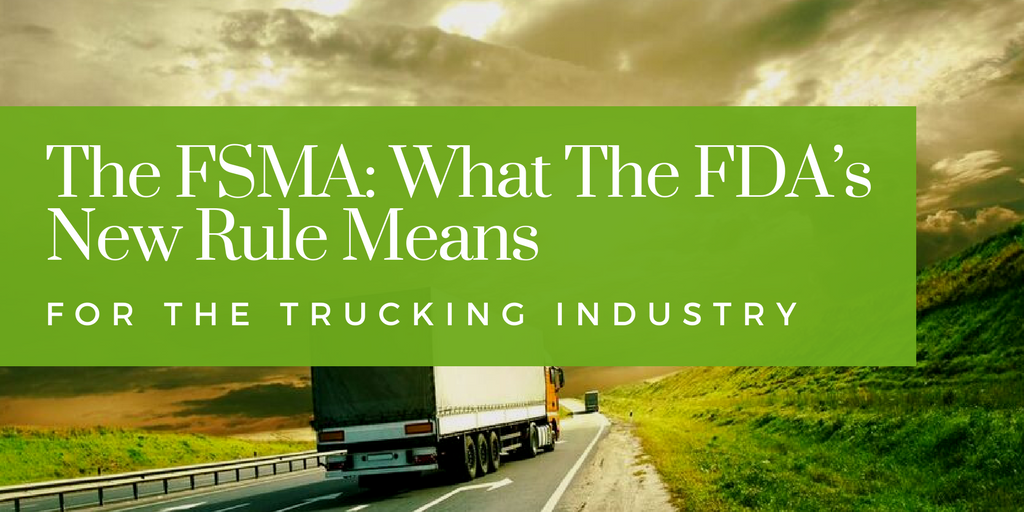By April of 2017, the trucking industry must be in compliance with the Food Safety Modernization Act (FSMA). While many points in the FSMA are common sense, the preparations in between shipments could cost both time and money for independent drivers and fleet owners. We are going to look at the major points of the Food Safety Modernization Act, to see how the FDA’s ruling will impact the trucking industry.
FSMA: The Intent
The Food Safety Modernization Act is intended to reduce the horror stories and quantifiable outbreaks of illness due to food contamination which results from improper packing and transportation procedures. No one wants to eat meat, for example, that has been shipped in unclean and unrefrigerated containers. The FSMA contains a long list of how the transportation of various foods, ranging from prepared frozen meals to fresh produce, and even livestock, need to be handled before and during transportation.
The Reality
Ensuring food is transported in cleaned and temperature regulated containers can be costly for fleet owners and independent drivers. Ensuring those containers are prepared and cleaned between shipments can take time, as well. Becoming compliant with the FSMA can cost money – not just on the physical and technical requirements, but also in training drivers and other employees the ins and outs of the new regulations. However, not being compliant with the FSMA will incur fines and possibly a reduction in customers.
But Wait, There’s More
On the business and finance side of things, the FSMA will have an even larger impact. Brokers are going to require proof of compliance with the FSMA by April of 2017. Those independent drivers and fleets that are not compliant will not be able to get shipments or contracts. In a sense, becoming compliant with the FSMA will ensure long-term business and growth. Not making the changes in order to save money for the short-term will result in reduced business and revenue. As it stands, there is no avoiding the Food Safety Modernization Act if people in the trucking industry want to remain competitive in the United States.
Looking To The Future
Across the board compliance with the FSMA must be ready by April of this year. While the Food Safety Modernization Act is not the largest overhaul handed down by the FDA, the requirements are not small by any means. This ruling may be modified in the near future, depending on the data resulting from the act, and Express Freight Finance will be monitoring news and findings on the FSMA, so we can bring it to you in plain English, without having to sift through government and legal documents to get the information you need.






